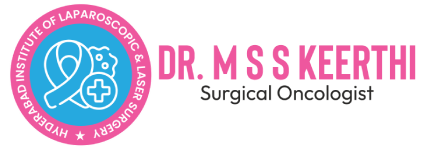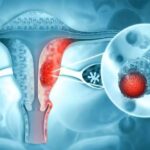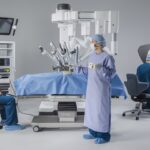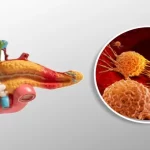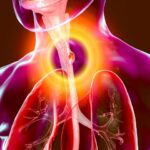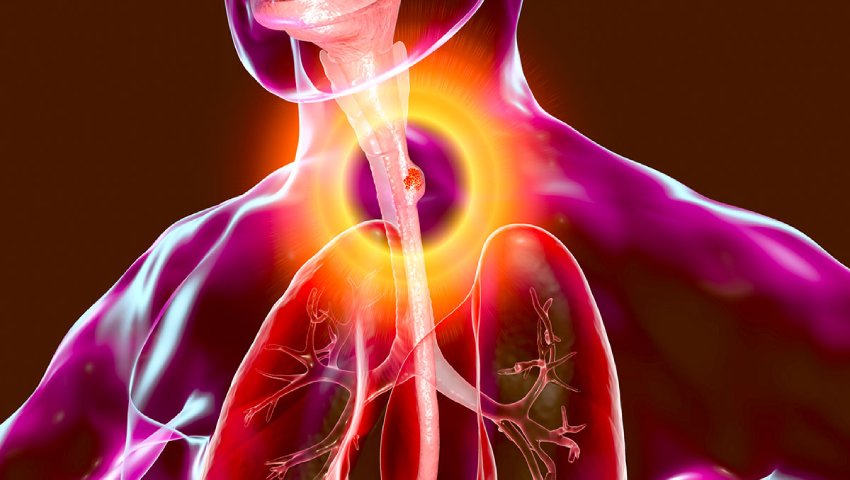
Understanding Esophageal Cancer:
Esophageal cancer is a serious disease that affects the food pipe, making it difficult to swallow. It often starts with mild symptoms, which can be mistaken for common digestive issues. Early detection improves treatment outcomes and increases the chance of survival. Dr. M.S.S. Keerthi, the Best Cancer Specialist in Hyderabad, emphasizes the importance of early screening for esophageal cancer.
Why Early Detection is Important:
- Better Treatment Success: Detecting esophageal cancer in the early stages allows for more treatment options, such as surgery or minimally invasive procedures.
- Higher Survival Rates: Compared to advanced stages, early-stage cancer has a better outcome and higher survival rates.
- Prevents Cancer Spread: When diagnosed early, cancer can be treated before it spreads to other organs.
- Minimally Invasive Treatment Options: Dr. M.S.S. Keerthi, a Surgical Oncologist in Hyderabad, specializes in laparoscopic and robotic procedures, which offer quicker recovery and fewer complications.
- Reduced Treatment Costs: Advanced cancer treatment is expensive and requires aggressive therapies, while early detection can lead to cost-effective management.
Symptoms of Esophageal cancer
- Difficulty swallowing (dysphagia)
- Persistent heartburn or acid reflux
- Unexplained weight loss
- Chest pain or discomfort
- Chronic cough or hoarseness
If you experience any of these symptoms, consult Dr. M.S.S. Keerthi, a Surgical Oncologist in Secunderabad, for expert advice.
How is Esophageal Cancer Diagnosed?
Esophageal cancer is often diagnosed at an advanced stage because early symptoms can be mild or mistaken for common digestive issues. However, prompt diagnosis is essential to successful treatment. Esophageal cancer can be found and confirmed with a variety of tests and procedures.
1. Medical History and Physical Examination:
A comprehensive medical history and physical examination are the first steps in the diagnosis process. A physician will evaluate symptoms including chest pain, recurrent heartburn, weight loss, or trouble swallowing. Additional testing is advised to confirm the diagnosis and detect the stage of esophageal cancer if it is suspected.
2. Endoscopy:
An endoscope, also known as an esophagogastroduodenoscopy or EGD, is one of the main diagnostic procedures. In order to inspect the esophagus, a thin, flexible tube equipped with a camera is placed into the mouth.
3. Biopsy:
If any abnormal tissue is detected, a biopsy is performed by taking a small sample for laboratory analysis. A biopsy is essential in confirming the presence of cancer cells.
With advancements in diagnostic technology, detecting esophageal cancer at an early stage is now more achievable. Consulting an experienced specialist like Dr. M.S.S. Keerthi, a leading Esophageal cancer specialist, ensures access to the latest diagnostic methods and personalized treatment plans.
4 Advanced Treatment Options for Esophageal Cancer by Dr. M.S.S. Keerthi:
Esophageal cancer treatment has significantly evolved with the advancement of medical technology and surgical techniques. The treatment plan for esophageal cancer depends on factors like the stage of the disease, tumor location, and overall health of the patient. Dr. M.S.S. Keerthi follows a personalized approach, combining different therapies to achieve the best results.
1. Robotic and Laparoscopic Surgery:
Minimally invasive techniques, such as robotic-assisted and laparoscopic esophagectomy, have transformed cancer surgery. Dr. M.S.S. Keerthi, a skilled Robotic Onco Surgeon in Hyderabad, performs these procedures with high precision, ensuring faster recovery, reduced pain, and minimal scarring. Better visibility and control are made possible by robotic surgery, which enables more precise and trouble-free removal of malignant tissue.
2. Radiation Therapy:
High-energy X-rays or proton beams are used in radiation therapy to kill cancer cells. It is frequently used when combined with chemotherapy or surgery. External beam radiation therapy (EBRT) is the most common type, targeting the tumor while sparing healthy tissues.
3. Immunotherapy:
Immunotherapy helps the body’s immune system recognize and fight cancer cells. Drugs such as checkpoint inhibitors (Pembrolizumab, Nivolumab) boost the body’s defense mechanism, particularly in patients with advanced or metastatic esophageal cancer.
4. Chemotherapy:
The systemic treatment known as chemotherapy uses powerful medications to destroy cancer cells. Dr. M.S.S. Keerthi customizes chemotherapy plans based on the stage and type of esophageal cancer. It is often used:
- Before surgery (neoadjuvant therapy) to shrink tumors
- After surgery (adjuvant therapy) to prevent recurrence
- In advanced cases to control cancer spread and improve quality of life
If you or your loved one has been diagnosed with esophageal cancer, consulting an expert like Dr. M.S.S. Keerthi can make a significant difference in treatment success and recovery. Early detection is key to successfully treating esophageal cancer. If you or a loved one experience symptoms, seek medical attention immediately. Dr. M.S.S. Keerthi, a Surgical Oncologist in Hyderabad, offers expert consultation and advanced treatment options.
Book an Appointment Today!
